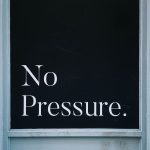
Next week we will hold several Masterclass sessions where will talk about Abuses of Power in the Personal Angel profession, led by Stacey Pinkerton, TLI professor (an amazing woman, a survivor of power abuses that took place in the USA and a promoter of the global #metoo movement) and by M. Stewart Ryan, a great professional expert lawyer in these cases.
It will describe a general panorama of what it means to work as a PA in environments of private and influential lives where the combination of confidentiality, power, money and sometimes celebrities, can involve knowing and applying professional ethics, detecting compromising situations, anticipating and prevent the consequences. And how to act wisely and strategically.
We are aware that our work seems to be synonymous with total availability, 24 hours a day / seven days a week, but it is not like that … Managing extraordinary and complicated lifestyles at the same time is not an easy task and there is a lot of involvement, responsibility and demand. But can anyone believe that we, as human beings, can be required to work 24 hours a day, 7 days a week? Or really, what our employer / client needs is that we help them organize the endless aspects of their private life, and be expected as PA professionals to know how to organize it, maintain control in management, as well as enjoy the right to have rest and a life of our own; Both are compatible and we are demonstrating this after our experience of assisting +300 clients and families with whom we have worked for the last +15 years from our leading international agency in Personal Assistance for UNHWIs, Alberta La Grup.
How to recognize the abuse of power? Are there a series of signs that we can distinguish to identify that this abuse is being used while doing our job? Can this be expected or prevented from happening? Should it be the same in all professions or should it only apply to PA? And perhaps the most important thing: have you considered that these types of situations could arise and how to solve them? Where to start? Which professional to turn to? These and many other questions are covered in this Masterclass and the Ethics Committee.
Some topics that we would discuss about:
- We talk about professional ethics and abuses of power. What they mean, how to detect or identify. What is an abuse of power, contexts in which it can occur. A real case, and other examples of abuse of power in a PA environment. Abuses of power in history, some chronology, examples in other areas: ecclesiastical, educational, business, authorities. Other examples: bullying, discrimination, racism, rape, harassment
- People and toxic people Identify signals and how to handle them? Prepare the strategy for an exit that is advantageous for you and that does not harm you: evidence, testimonials, how to protect yourself, behaviors, vulnerability
- The Network of support and Professionals to contact. Empower yourself to manage it and not affect your well-being: assertiveness, emotional intelligence, setting limits, asking for respect. Associations. Movements and Initiatives. Our Ethics Committee
- The legal framework in different countries. what about NDAs, confidentiality and other documents- should I just accept or sign them.
- Help society. Prevent repetitions.
Ethics Committee
This Masterclass covers this and many other issues that we would like to acknowledge. We have gone beyond a mere masterclass and our commitment extends to creating an initiative, and that has inspired us to create the Ethics Committee with the aim to provide professional support to PAs and former alumni, and to channel sensitive professionals – the survivors of the abuse of power within our professional field, who had previous experience in collaborating with PAs and who can assist in managing a situation of the Abuse of Power.
No one is trained for the abuse of power. That is why information helps to avoid. People face these situations without looking for them, without waiting for them and it is from when they occur that we react and seek support, that we need resources and consult experts to overcome them or leave them behind.
When we were preparing sessions and discussing them with professionals, we realized, once again, that there were more negative experiences than we could imagine. To a greater or lesser extent, we all can remember a case that has happened to us or that someone has shared with us and that eventually was an abuse of power.
That is why giving visibility, educating from childhood, informing, sharing what happened, reporting means that together we are able to gradually improve this social stigma.
Because to be Personal Angel we need wings to fly, not to cut them off.
Copyright © by Alberta La Grup
If you wish to re-print this article or photos, that’s fine.
Just include the biography at the end of the article. Thank you!
Photo Credits: Unsplash





